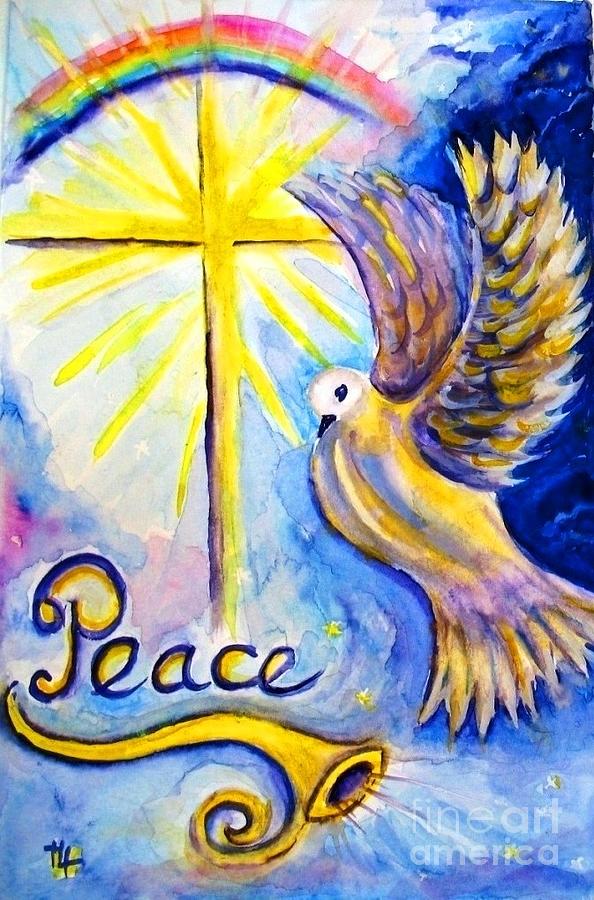"How much more will the blood of Christ, who through the eternal Spirit
offered Himself unblemished to God, purify our consciences from the
works of death, so that we may serve the living God!"
(Hebrews 9:14)
O Holy Night! The stars are brightly shining,
It is the night of our dear Saviour's birth.
Long lay the world in sin and error pining,
Till He appear'd and the soul felt its worth.
A thrill of hope, the weary world rejoices,
For yonder breaks a new and glorious morn.
Fall on your knees! O hear the angels voices!
O night divine, O night, when Christ was born;
O night divine, O night, O night Divine.
Led by the light of Faith serenely beaming,
With glowing hearts by His cradle we stand.
So led by a star sweetly gleaming,
Here come the wise men from the Orient land.
The King of Kings lay thus in lowly manger;
In all our trials born to be our friend.
He knows our need, to our weakness no stranger,
Behold your King! Before Him lowly bend!
Behold your King! Before Him lowly bend!
Truly He taught us to love one another;
His law is love and His gospel is peace.
Chains shall He break for the slave is our brother;
And in His name all oppression shall cease.
Sweet hymns of joy in grateful chorus raise we,
Let all within us praise His holy name.
Christ is the Lord! O praise His name forever,
His power and glory evermore proclaim!
His power and glory evermore proclaim!
Cantique de Noel
"O Holy Night"
(1843)
Palcide Cappeau
(1808-1877)
French hymn writer
The Story Behind The Song
Lyricist Placide Cappeau was born in 1808 in Roquemaure, France.
At the tender age of eight he lost his hand in a fire arms accident,
however, this tragic occurrence did not prevent him from his
love of writing poetry, not to mention one of the most
well known Christmas carols of all time.
In 1843, Cappeau, having been commissioned by a French
priest to write this beloved song, asked a man named
Adolphe Charles Adams to compose the music.
The song was first sung at a Christmas Eve mass that year.
"Cantique de Noel" became widely popular across France until
religious leaders learned Cappeau was a socialist, and Adams was a Jew.
The song was then banned from being sung at church services.
The French people, however, loved this beautiful hymn so much,
that they continued to sing it.
About ten years later, an influential classical music critic
named John Sullivan Dwight introduced this song in America.
As an active member of the Abolitionist Movement, he was
particularly moved by the words,
"Chains shall break for the slave is our brother."
I belief that a deeper meaning of this verse reflects Christ's
breaking the chains of mankind's slavery to sin on the cross.
Although it remained banned in France, Cantique de Noel
became one of the most popular Christmas carols in America.
On Christmas Eve in 1871, in the middle of one of the fiercest
battles of the Franco-Prussian War between France and Germany,
an unarmed French soldier is said to have jumped out of the trenches,
and walking into the heat of combat, began to sing the first line of
"Cantique de Noel" in French. The fighting around him came to a
halt as this brave soldier finished three more verses of the song.
Then, on the opposite side of the battlefield, a German soldier
suddenly emerged from the trenches and began singing a
sacred hymn in his language, after which fighting came to
a complete standstill for the next 24 hours in
honor of Christmas Day.
"A thrill of hope, the weary world rejoices,
For yonder breaks a new and glorious morn..."
The remembrance of the birth of Sar Shalom, the Prince of Peace, was
initiated by an act of faith, inspired by the words of this beautiful song.
In the early 20th century, a Canadian-born scientist and inventor named
Reginald Fessenden discovered that by combining two frequencies, radio
could do more than transmit Morse code. He saw that through this
medium it would be possible to speak! In 1906, a human voice
was heard on the airwaves for the first time through the vocal
cords of Mr. Fessenden, who read Luke's account of the Nativity
story and afterwards, picked up his violin and performed,
Cantique de Noel "O Holy Night".
Since that time, there have been numerous recordings of this song.
One of my favorites is performed by the angelic voice of
beautiful American country singer Martina McBride.


No comments:
Post a Comment